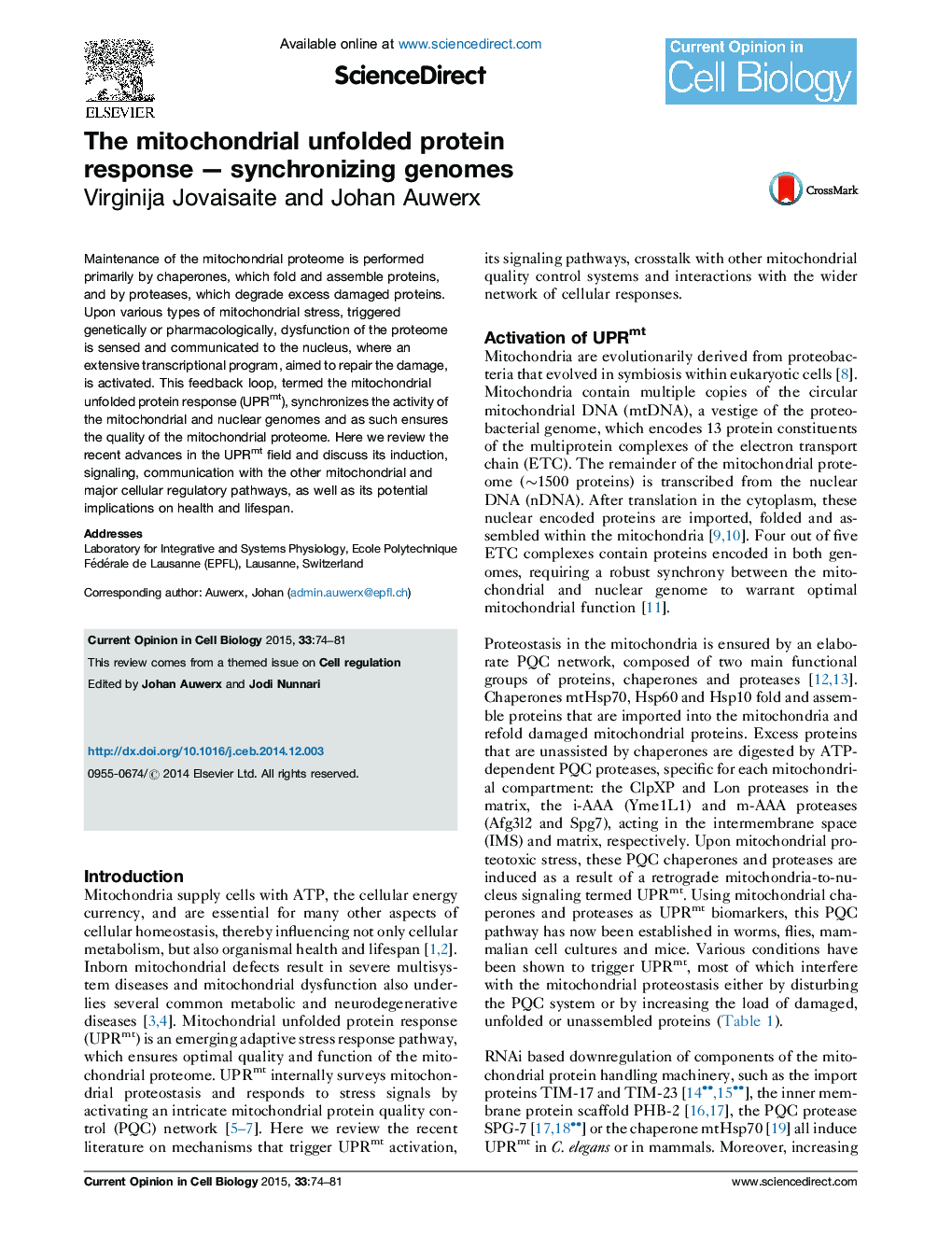| Article ID | Journal | Published Year | Pages | File Type |
|---|---|---|---|---|
| 8465629 | Current Opinion in Cell Biology | 2015 | 8 Pages |
Abstract
Maintenance of the mitochondrial proteome is performed primarily by chaperones, which fold and assemble proteins, and by proteases, which degrade excess damaged proteins. Upon various types of mitochondrial stress, triggered genetically or pharmacologically, dysfunction of the proteome is sensed and communicated to the nucleus, where an extensive transcriptional program, aimed to repair the damage, is activated. This feedback loop, termed the mitochondrial unfolded protein response (UPRmt), synchronizes the activity of the mitochondrial and nuclear genomes and as such ensures the quality of the mitochondrial proteome. Here we review the recent advances in the UPRmt field and discuss its induction, signaling, communication with the other mitochondrial and major cellular regulatory pathways, as well as its potential implications on health and lifespan.
Related Topics
Life Sciences
Biochemistry, Genetics and Molecular Biology
Cell Biology
Authors
Virginija Jovaisaite, Johan Auwerx,
